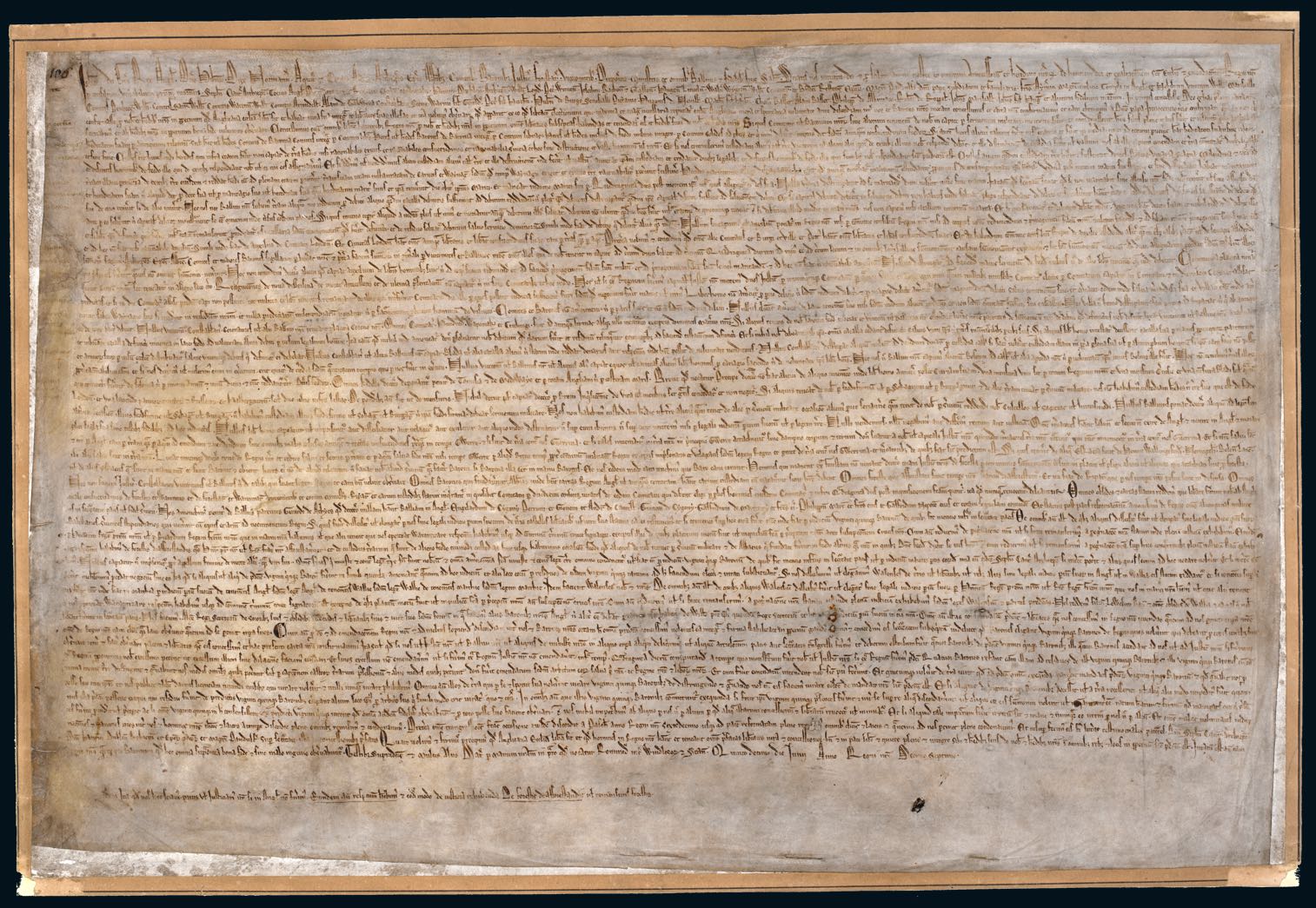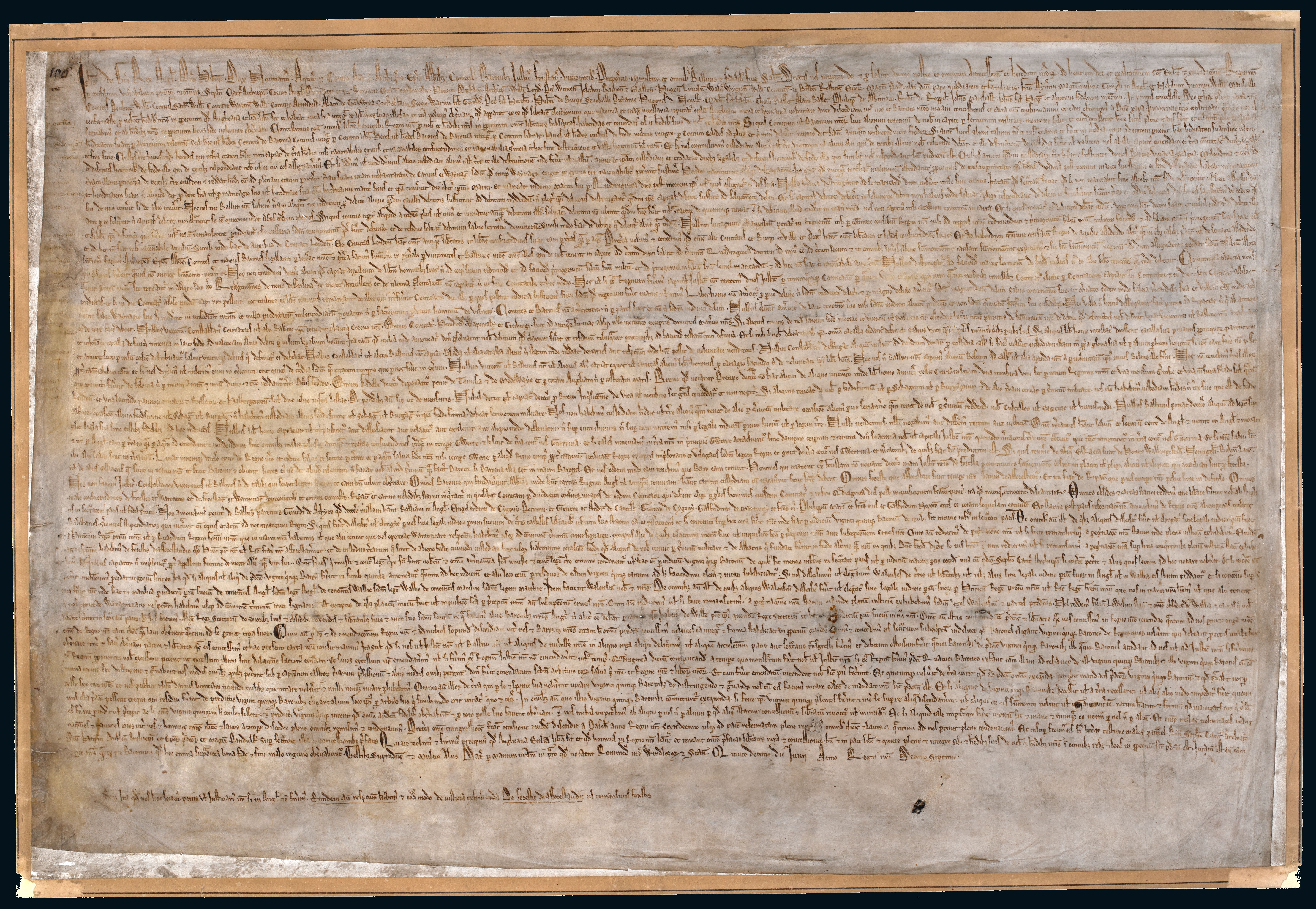
Et ad habendum commune consilium regni de auxilio assidendo aliter quam in tribus casibus predictis, vel de scutagio assidendo summoneri faciemus: Archiepiscopos, Episcopos, Abbates, Comites et maiores Barones sigillatim per litteras nostras et preterea faciemus summoneri in generali per vicecomites et ballivos nostros omnes illos qui de nobis tenent in capite; ad certum diem scilicet ad terminum quadraginta dierum ad minus et ad certum locum et in omnibus litteris illius summonicionis causam summonicionis exprimemus et sic facta summonicione negotium ad diem assignatum procedat secundum consilium illorum qui presences fuerint quamvis non omnes summoniti venerint.
To obtain the general consent of the realm for the assessment of an 'aid' - except in the three cases specified above - or a 'scutage', we will cause the archbishops, bishops, abbots, earls, and greater barons to be summoned individually by letter. To those who hold lands directly of us we will cause a general summons to be issued, through the sheriffs and other officials, to come together on a fixed day (of which at least forty days notice shall be given) and at a fixed place. In all letters of summons, the cause of the summons will be stated. When a summons has been issued, the business appointed for the day shall go forward in accordance with the resolution of those present, even if not all those who were summoned have appeared.
